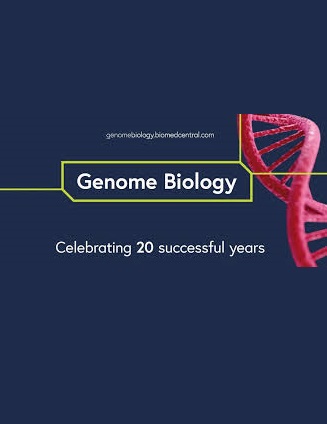Multi-omics reveals lactylation-driven regulatory mechanisms promoting tumor progression in oral squamous cell carcinoma
IF 10.1
1区 生物学
Q1 BIOTECHNOLOGY & APPLIED MICROBIOLOGY
引用次数: 0
Abstract
Lactylation, a post-translational modification, is increasingly recognized for its role in cancer progression. This study investigates its prevalence and impact in oral squamous cell carcinoma (OSCC). Immunohistochemical staining of 81 OSCC cases shows lactylation levels correlate with malignancy grading. Proteomic analyses of six OSCC tissue pairs reveal 2765 lactylation sites on 1033 proteins, highlighting its extensive presence. These modifications influence metabolic processes, molecular synthesis, and transport. CAL27 cells are subjected to cleavage under targets and tagmentation assay for accessible-chromatin with high-throughput sequencing, and transcriptomic sequencing pre- and post-lactate treatment, with 217 genes upregulated due to lactylation. Chromatin immunoprecipitation-quantitative PCR and real-time fluorescence quantitative PCR confirm the regulatory role of lactylation at the K146 site of dexh-box helicase 9 (DHX9), a key factor in OSCC progression. CCK8, colony formation, scratch healing, and Transwell assays demonstrate that lactylation mitigates the inhibitory effect of DHX9 on OSCC, thereby promoting its occurrence and development. Lactylation actively modulates gene expression in OSCC, with significant effects on chromatin structure and cellular processes. This study provides a foundation for developing targeted therapies against OSCC, leveraging the role of lactylation in disease pathogenesis.多组学揭示促进口腔鳞状细胞癌肿瘤进展的乳化驱动调控机制
乳化是一种翻译后修饰,其在癌症进展中的作用日益得到认可。本研究调查了乳化在口腔鳞状细胞癌(OSCC)中的发生率及其影响。对 81 例 OSCC 进行的免疫组化染色显示,乳化水平与恶性程度分级相关。六对 OSCC 组织的蛋白质组分析显示,1033 个蛋白质上存在 2765 个乳化位点,突显了乳化的广泛存在。这些修饰会影响新陈代谢过程、分子合成和运输。对 CAL27 细胞进行靶标下裂解和可触及染色质标记检测,并进行高通量测序,以及乳酸处理前后的转录组测序,结果显示乳化作用导致 217 个基因上调。染色质免疫沉淀-定量 PCR 和实时荧光定量 PCR 证实了乳酸化在 dexh-box helicase 9(DHX9)的 K146 位点的调控作用,DHX9 是 OSCC 进展的关键因素。CCK8、菌落形成、划痕愈合和Transwell试验证明,乳化作用减轻了DHX9对OSCC的抑制作用,从而促进了OSCC的发生和发展。乳化作用可积极调节 OSCC 中的基因表达,对染色质结构和细胞过程有显著影响。这项研究为利用乳酸化在疾病发病机制中的作用开发针对 OSCC 的靶向疗法奠定了基础。
本文章由计算机程序翻译,如有差异,请以英文原文为准。
求助全文
约1分钟内获得全文
求助全文
来源期刊

Genome Biology
Biochemistry, Genetics and Molecular Biology-Genetics
CiteScore
21.00
自引率
3.30%
发文量
241
审稿时长
2 months
期刊介绍:
Genome Biology stands as a premier platform for exceptional research across all domains of biology and biomedicine, explored through a genomic and post-genomic lens.
With an impressive impact factor of 12.3 (2022),* the journal secures its position as the 3rd-ranked research journal in the Genetics and Heredity category and the 2nd-ranked research journal in the Biotechnology and Applied Microbiology category by Thomson Reuters. Notably, Genome Biology holds the distinction of being the highest-ranked open-access journal in this category.
Our dedicated team of highly trained in-house Editors collaborates closely with our esteemed Editorial Board of international experts, ensuring the journal remains on the forefront of scientific advances and community standards. Regular engagement with researchers at conferences and institute visits underscores our commitment to staying abreast of the latest developments in the field.
 求助内容:
求助内容: 应助结果提醒方式:
应助结果提醒方式:


